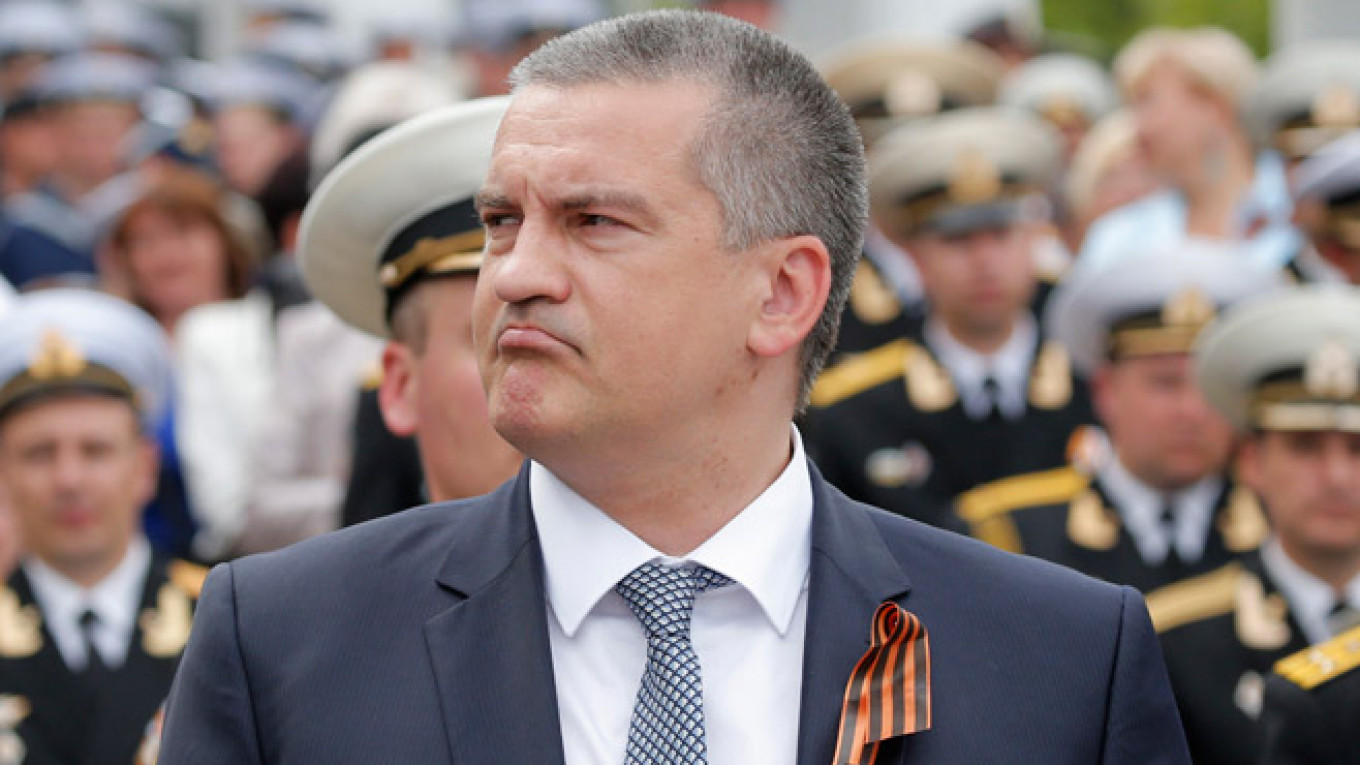A Russian anti-corruption law banning politicians from business activities will not be applied to Crimean officials until the end of the year to give them time to adjust to Russian legislation, said a presidential decree published on Thursday, RIA Novosti reported.
According to the Russian law, it is illegal for officials to do paid work in commercial organizations or to conduct commercial activities. Doing so, legislators say, may lead to corruption and smooth the way for shady links between businessmen and politicians.
The government's recent decree said that until the end of this year, officials serving in local Crimean executive bodies will be exempt from this law.
Local officials are also exempt from Russian laws that would require them to divest themselves of their assets in cases of conflict of interest. Official income declarations, which are mandatory for Russian officials, will also start only from next year.
Ukrainian legislation, which was in force on the peninsula before the annexation of Crimea by Russia in March of this year, was vague and allowed officials to combine business with government work. Many took advantage of this. According to the SPARK-Interfax database, Crimea's Prime Minister Sergei Aksyonov is a co-owner of the sporting club "Hvarang-do," while his deputy Rustam Temirgaliyev has stakes in several construction and mining companies.
"The decree gives them [Crimean politicians] more time to adjust to the legislation", said Alexander Turchynov, professor at the Presidential Academy of National Economy and Public Administration. However, he added, this could lead to an increase in corruption, as the officials may use their connections and influence to push forward their business interests before the law takes effect.
Some, however, think that the law will have very little effect on the behavior of Crimean politicians. "The decree will not change anything, as Crimean officials are already corrupt. They have developed different schemes to hide their property and business assets. I think politicians will not rely on pushing forward their business through their influence, but will use bogus companies to get advantage of government procurements," said Sergei Fominykh, an attorney in a law firm based in Crimea.
Government procurements are likely to become a major source of cash in Crimea. Russia plans to spend between 800 billion and 1 trillion rubles ($22 billion to $28.6 billion) until 2020 to implement a federal program aimed at developing Crimea and Sevastopol, Regional Development Minister Igor Slyunyayev said in April, RIA Novosti reported.
The switch of Crimea to Russian legislation may also cost a significant amount of money to Russia. Training the 14,000 Crimean officials in order to prepare them to move to Russian law standards may consume about 91 million rubles ($2.6 million) from the budget, Labour Minister Maxim Topilin told RBC earlier this year.
Contact the author at [email protected]
A Message from The Moscow Times:
Dear readers,
We are facing unprecedented challenges. Russia's Prosecutor General's Office has designated The Moscow Times as an "undesirable" organization, criminalizing our work and putting our staff at risk of prosecution. This follows our earlier unjust labeling as a "foreign agent."
These actions are direct attempts to silence independent journalism in Russia. The authorities claim our work "discredits the decisions of the Russian leadership." We see things differently: we strive to provide accurate, unbiased reporting on Russia.
We, the journalists of The Moscow Times, refuse to be silenced. But to continue our work, we need your help.
Your support, no matter how small, makes a world of difference. If you can, please support us monthly starting from just $2. It's quick to set up, and every contribution makes a significant impact.
By supporting The Moscow Times, you're defending open, independent journalism in the face of repression. Thank you for standing with us.
Remind me later.






